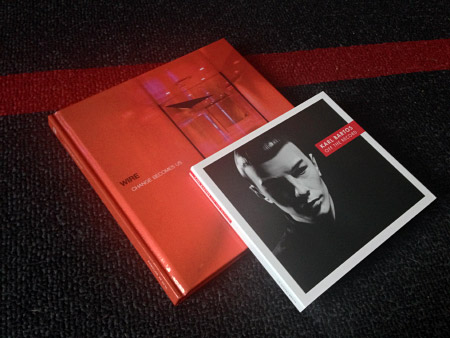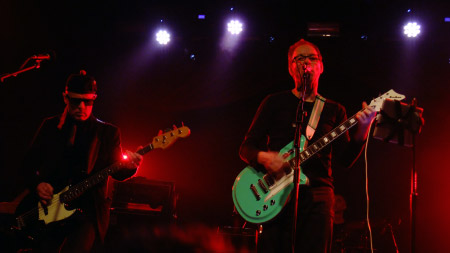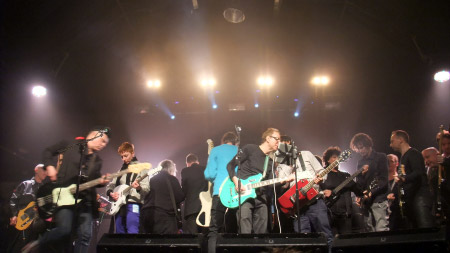Arriving within a short period of one another, two releases which both delve back into the history books in order to refashion roughs into polished new shapes. Wire have taken a selection of material that previously saw release only as live versions (on 1981’s ‘Document and Eyewitness’ live set and, later, the ‘Turns and Strokes’ compilation gathering together remaining waifs and strays of the period) – so, mostly familiar to long-time Wire fans. Bartos meanwhile has looked back to private musical sketches to bring something new to the world.

Both works are pretty much bound to appeal to existing fan bases – musically, these are both very much on-message with existing styles. Wire’s album is strong, with many echoes of their ‘Chairs Missing’/’154’ period to be found. What in many cases existed as little more than fragments at best on the 1979/1980 live recordings are hewn into solid pieces and transform pretty minimal pieces into prime slices of what Wire do best. Take for example, ‘As We Go’ – its earlier incarnation as ‘Part Of Our History’ is documented in rough, slow, minimal form on ‘Turns and Strokes’. This version is glorious, particularly resplendent with the guitar chords outro as the drums fade first. The fast paced measured staccato guitar chops which are very much a hallmark of Wire mark 1 are alive and well all over this work. It has been interesting to go back now and take a fresh listen to the live source materials. ‘Time Lock Fog’ is descended from ‘5/10’ in it’s original forms and listening back on that, the Graham Lewis bass pulse that anchors things when the piece kicks in reminds me of the later reworkings of ‘The Boiling Boy’ in live form. ‘The Boiling Boy’ remains a favourite of mine and I think it is one of the key pieces of Wire mark 2 in the same way that more famous ‘Drill’ is – as seen by its continued outings in recent years.
Wire premiered the entire album at a live show in London last week which I was fortunate to make it to and the pieces work well live, as you might imagine since many of them have been in the set lists over the past year and a half or so.


The Bartos album differs in that the works have no obvious sources to compare against. The CD comes in a digipack which comes with extensive background notes to each piece from Kark himself and give a good idea to the original inspirations. Musically, this is very much a continuation from the styles that was last heard on his ‘Communication’ album, complete with phoneme voice synthesis et al. The poppier numbers such as ‘Without A Trace Of Emotion’ and ‘Nachtfahrt’ in particular will seem familiar already. There are of course echoes of Kraftwerk – not least the ‘Neon Light’s style to ‘The Tuning of the World’, ‘Rhythmus’ and its echoes of the ‘Trans-Europe Express’ rhythm married with a variant on the ‘Computer World’ melody, while the closing ‘Hausmusik’ harks back to the pre-Bartos ‘Tanz Musik’.
The pieces that work best for me are ‘Instant Bayreuth’ and ‘Vox Humana’ – the former tapping into the same traditional vibe that much of ‘Radio-Activity’ mined, while the latter goes off into a weirder musical noise textures (as does the latter half of ‘Musica Ex Machina’) to good effect.
What both works do share though is in the packaging – the Wire release is the deluxe hardback book edition, which comes with copious notes and photos from the recording session for the album at Rockfield studios in Wales. Didn’t come cheap, but worth the extra, nice package all in all. The standard Bartos digipack CD (at least the one I came by) comes with a set of pages where there are detailed notes, including the technology used at the time and now, plus the lyrics to the pieces. In the case of Bartos’ work, visual accompaniment is clearly part of the overall work too.
Where both parties venture next, who knows. Wire now with fresh blood in the addition of Matt Simms on guitar sounds on fine form on this outing and one imagines this is a rare look backward from a unit that has traditionally always had an eye on moving beyond past works. For Bartos, let’s hope that this reactivates the circuitry enough to ensure there is not another decade’s wait between releases.

